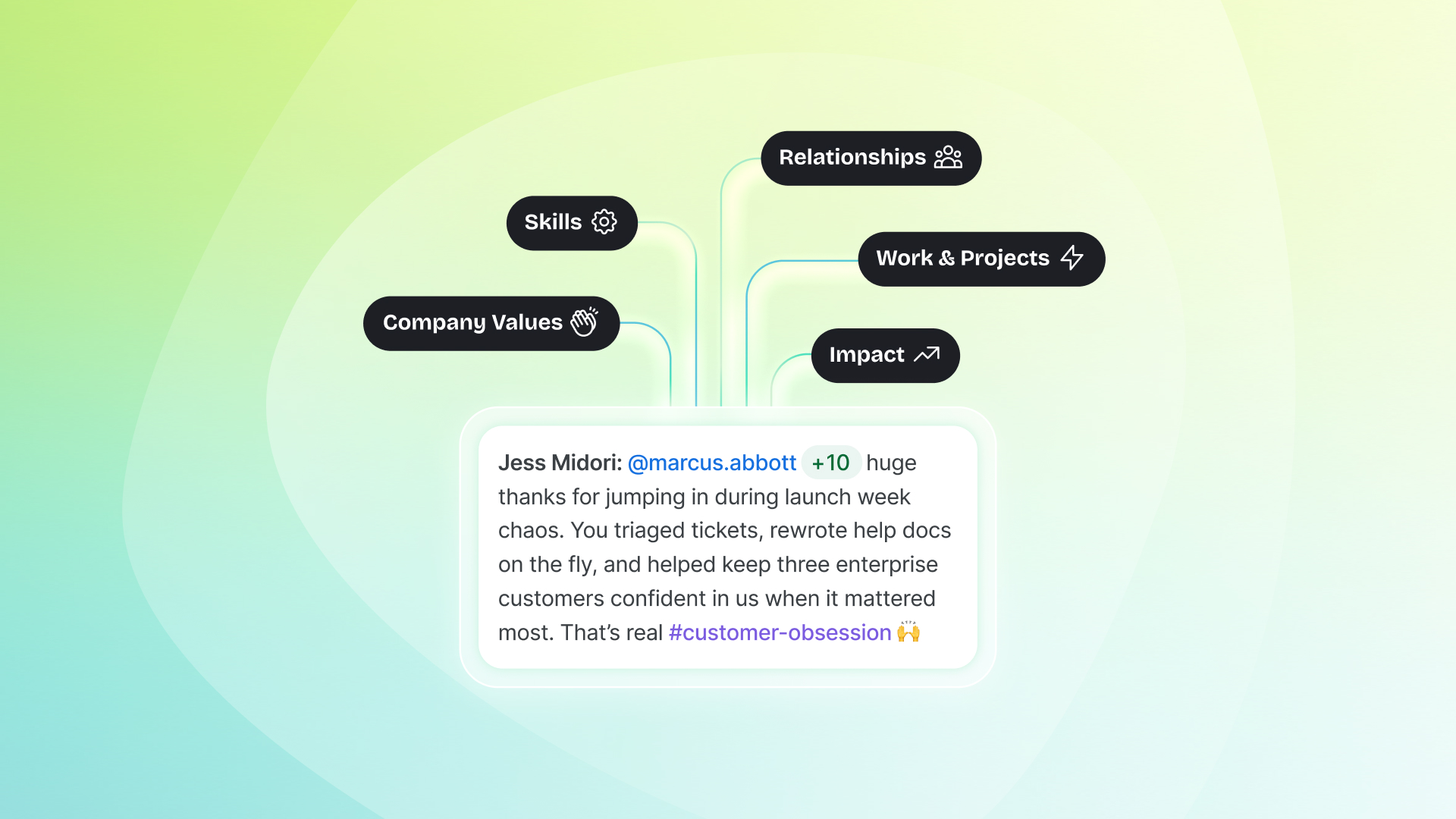How to Boost Productivity with Your Paid Time Off Policy

Can your paid time off (PTO) policy really make your team more productive?
According to multiple studies across many types of business around the world, the resounding answer is "yes." The benefits of time off are myriad. Some of these benefits clear and direct, and some you may not have even considered.
And the best part?
There's a good chance you're not even realizing PTO's full potential yet. There are a few easy ways to improve the policy you already have, and to increase the benefits your team and organization receive from it.
Why it's crucial to have a great PTO policy
A well-designed and executed paid time off policy can have a significant impact on many different areas of an organization.
Stronger employee value proposition (EVP)
A great PTO policy can dramatically strengthen your EVP. In the modern talent landscape, flexibility, work-life balance, freedom, and autonomy are major factors that can win or lose the interest of a candidate.
Your PTO strategy will speak to any one of those factors, and the message it conveys is up to you. That's valuable for both recruitment and employee retention.
Battling burnout
It's no secret that even the best employees have the potential to burn out eventually. There are a lot of ways you can help prevent that, but PTO is one of the most simple and effective solutions to employee burnout.
Improving mental health
The results of time well spent outside the workplace can make a big difference in a person's attitude, and mental health, but the benefits don't stop there. A study by the American Sociological Association found that people who take vacation don't only benefit individually, they actually improve the mood of others around them.
Improved physical health
Results from an Oxford study published in the American Journal of Epidemiology suggested an approximate 40 percent excess risk of coronary heart disease could be associated with long working hours. Compound those long working hours with a lack of days off, and you have a recipe for a major health disaster.
Providing time off and actively encouraging employees to utilize it can help save even the most focused and dogged workaholic from themselves.
Fresh perspectives
Sometimes the best way to solve a problem is to come at it from a fresh perspective. Time spent outside your normal working environment can provide a perfect venue for that.
Time off gives you a break from the mountain of tactical issues you're often tackling, and that break can lead to breakthroughs, by providing a much-needed step back.
I think back to a time earlier on in Bonusly's development, when a member of our founding team took a week to go surfing. You might not immediately equate surfing with engineering breakthroughs, but bear with me.
While he was out, he spent very little time actively working, but that didn't mean the time was unproductive. The solution to a particularly challenging engineering problem came to him when he was far away from the office, both mentally and physically.
Had he not taken that time away from the office and gained that fresh perspective, that solution may have been much harder to come by.
Achieving maximum impact
So, it's clear that time off can provide many vital benefits, but how do you maximize these benefits in your own paid time off policy?
Encourage use of PTO

It's no big secret that your current employees and candidates alike focus on it as an important factor. A study conducted by TriNet found that:
Eighty-nine percent of all employees surveyed consider PTO important to their job satisfaction and count PTO packages as an important component when evaluating a new position.
Despite most organizations keying in on the importance of time off, there are many scenarios where employees don't use the time off they're granted. This is especially true in America.
According to a study of over 2,000 American workers by Glassdoor, participants reported using only half (51 percent) of his or her eligible time off in the past 12 months.
Our friends at Namely found similar results in a study they published recently.
Why the disconnect?
In some cases, employees are stacking up their time off in anticipation of a health event, family emergency, or other major event in their lives that never happens.
In many other cases, it's the culture.
Whether deliberately or not, some organizational cultures send a message to employees that this behavior — these long hours, and weekends spent hammering out work with little or no rest — is acceptable, or even praiseworthy.
This is an especially widespread trend throughout the startup community.
It's an increasingly common ideology across the globe, that it's respectable to sacrifice your comfort and well-being for your job. Unless your organizational culture is actively countering that trend, it likely appears complicit.
So how do you fix that?
Set a good example: take time off.
A company's leadership has a major formative impact on its culture, and it's important to consider that impact in relation to PTO.
If on paper, the paid time off policy states that employees get two or three weeks of PTO each year, but senior leadership never leaves the office, what kind of statement is that making about the policy?
Make sure the team can see that leadership truly values time off, and takes advantage of its benefits too. "Do as I say, not as I do" isn't an effective strategy for most parents, and it doesn't work much better for leadership.
Don't interrupt PTO

This is paramount. How recuperative can time off be if it's not really time off?
Sixty-one percent of employees in the Glassdoor study mentioned above admitted to working while on vacation. That's really unfortunate, because despite the best efforts and the best laid plans, these workers aren't benefiting from PTO as much as they could be.
What's worse, is that 24 percent of the workers in that study "report being contacted by a colleague about a work-related matter while taking time off, and one in five (20 percent) have been contacted by their boss."
It's one thing to ruin your own vacation by focusing on and stressing out about work the whole time, but another thing entirely to do that to someone else.
If you're a leader and you're contacting someone on vacation, it had better be to give them a hot tip on a restaurant near them that you loved.
Make your PTO policy clear

Make sure that everyone knows the policy, and that it's clearly laid out. Use PTO software to handle requests if helpful.
An unlimited vacation policy can be an excellent way to provide a great deal of the autonomy and flexibility modern employees desire.
Now, this might seem counterintuitive, but that same policy can just as easily be a barrier to employees actually taking vacation.
Once again, it all comes down to the explicit and implicit communication coming from their leaders and colleagues.
If employees are told they can take unlimited time off as long as their work isn't impacted, guess how many days they're going to take off...
Yep. Probably close to zero.
In our own company, we place a huge value on autonomy and trust our team to get their work done in the way that works best for them. We use unlimited PTO, but in order to avoid the "unlimited time off = no time off" pitfall, we track and enforce a minimum number of days off.
In addition to time off, we also believe in the value of taking 'work-cations,' where an employee will still be working half or full days, but might be in a different city, state, or country. This allows us to take time completely off when we need a break, but also to maintain a great sense of flexibility work-life integration when we don't.
To help make our policy clear, and document its evolution, we keep a shared log of different ways members of our team have taken vacations and work-cations — both to inspire others to take time, and to provide examples of things that have worked.
Considerations

There's no perfect formula for building a great policy, because each organization and its culture are unique. There are a number of considerations to factor in as you work to improve your PTO policy.
TriNet published a great quick reference guide covering some of the things you may want to consider as you draft or modify your own policy.
For some inspiration to get the gears turning, Recruiting Daily published a list of innovative policy examples you might find useful, too.
In conclusion
A solid paid time off policy can provide a multitude of benefits, and in many cases, you can maximize those benefits without expanding the policy, or adopting a new one.
Are you ready to take the next step toward building better workdays? Check out our latest guide:




.png)


